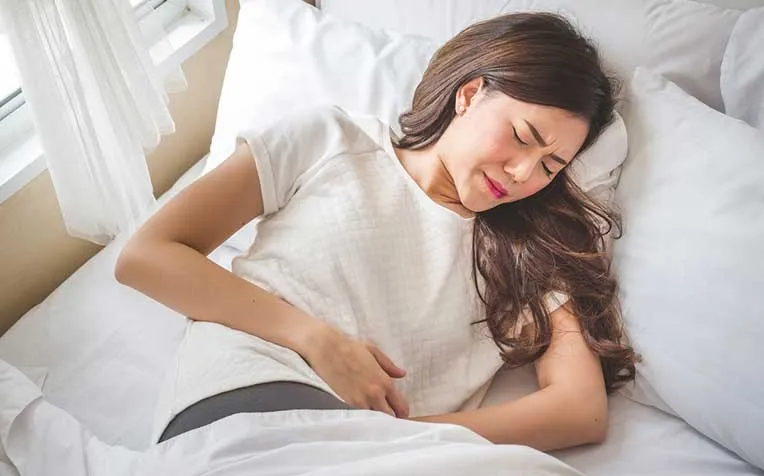Dysmenorrhea, or painful periods, affects a sizable percentage of females during various menstrual cycle stages.
For a long time, young girls and women believed they had no choice but to suffer in silence, yet pain and abnormal bleeding can be signs of something more serious in many circumstances.
Endometriosis, PCOS, fibroid’s, and other disorders cause chronic problems for many women.
Consult Dr. Shweta Shah, a prominent female gynecologist in Malad, Mumbai, if you have any queries. She’ll share her knowledge and insights into the causes of painful periods, severe pain, and bleeding, help diagnose the underlying condition and provide treatment options.
Overview about painful periods
Every month, the uterus sheds its lining, which is known as menstruation. It’s common to have some pain, discomfort, and cramping during menstrual cycles. Excessive pain that prevents you from going to school or working is not.
Primary and secondary are the two forms of dysmenorrhea (period pain).
People with primary dysmenorrhea report pain before and during menstruation. It could be secondary dysmenorrhea if you have always had regular periods that have gotten painful later in life. This could be caused by a disorder that affects the uterus or other pelvic organs, such as uterine fibroids or endometriosis.
What causes painful menstrual periods?
It is not always easy to figure out what is causing your painful menstrual periods. Some people are more susceptible to painful periods.
- Being under the age of twenty
- Periods with excessive bleeding
- Having a history of painful periods in the family
- Smoking
- Irregular menses
- Not having a child
- Attaining puberty before the age of eleven
The levels of prostaglandin, a hormone that is found in your uterus rises just before menstruation begins causing muscular spasms in your uterus. Pain and inflammation might result from these contractions.
Menstrual cramps can also be caused by an underlying medical problem, such as:
Premenstrual syndrome (PMS): It is a common ailment caused by hormonal imbalance in the body that occurs one or two weeks before menstruation. After the bleeding starts, the symptoms usually fade away.
Inflammation of the pelvis (PID): It is a sexually transmitted bacterial infection of the uterus, ovaries, or fallopian tubes that causes inflammation and pain in the reproductive organs.
Endometriosis: This is a painful medical disorder in which cells from the uterus lining develop in other places of the body, most commonly on the ovaries, fallopian tubes, or pelvic tissue.
Cervical stenosis: It is a rare disorder in which the cervix is so narrow or small that it hinders menstrual flow and causes pain inside the uterus.
Uterine fibroids: They are noncancerous tumors that can put pressure on the uterus or trigger abnormal menstruation and pain.
Adenomyosis: In this condition, the uterine lining develops into the uterus’ muscular wall, causing pressure, inflammation, and pain. It might also result in heavier or more extended periods.
Dr. Shweta Shah, a gynecologist doctor in Malad, Mumbai, is an expert in treating the above conditions. She has helped thousands of women find relief from painful menstrual periods.
If you are suffering from this condition, then surely visit her as she is one of the best gynecologist in Malad for comprehensive treatment and management of gynecological disorders.
How is the underlying issue diagnosed?
Your doctor will most likely take your medical history and conduct a physical exam to determine the underlying reason for painful menstruation. It will involve a pelvic exam to check for infection and any abnormalities in your reproductive system.
If your doctor suspects an underlying condition, she may recommend imaging tests. These can include the following:
- Ultrasonography
- MRI scan
- Diagnostic laparoscopy
What are the medical treatments for painful periods?
The underlying cause and severity of your pain will determine your treatment options. If sexually transmitted infections cause discomfort, or PID, Dr. Shweta Shah, a trusted gynecologist and obstetrician in Malad, will prescribe antibiotics to treat the disease.
She may also prescribe the following medications:
- Pain relievers
- Nonsteroidal anti-inflammatory drugs (NSAIDs)
- Antidepressants
- Hormonal birth control
Endometriosis and uterine fibroids can both be treated with surgery. If earlier therapies haven’t worked, this is a possibility.
Laparoscopic surgery is a good option as it is minimally invasive and results in quicker recovery and less trauma. Dr. Shweta Shah is a proficient laparoscopic surgeon in Malad, having received extensive training in the same.
If alternative treatments fail and discomfort is severe, surgical removal of the uterus (hysterectomy) may be considered. You will not be able to have children after this procedure.
This option is typically utilized by women who do not intend to have children or have reached the end of their reproductive years.
If you seek advanced and cost-effective treatments for women’s health issues, book an appointment with one of the top gynecologist in Malad, Mumbai, Dr. Shweta Shah.

